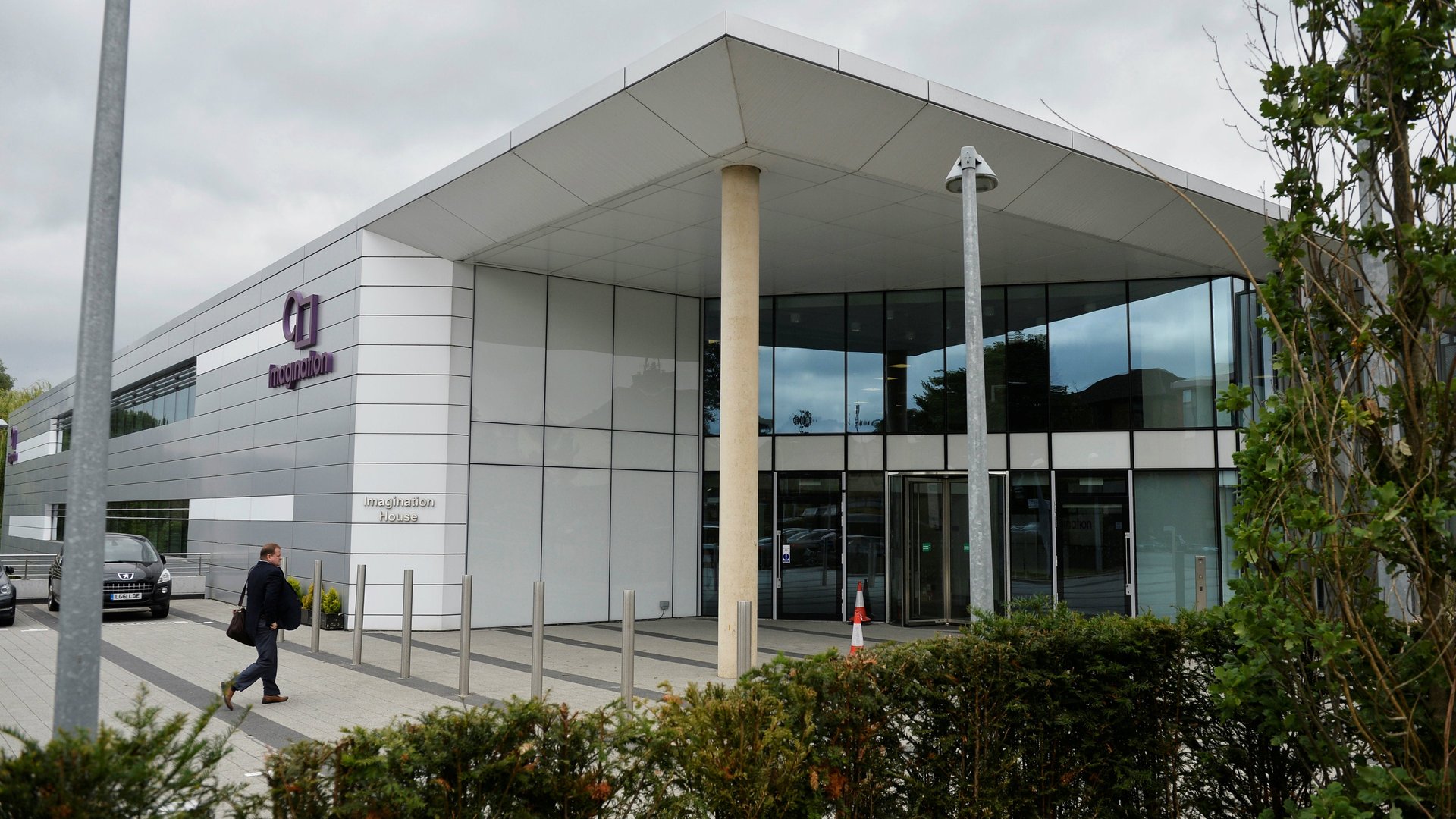The British chip designer that Apple killed might soon be bought by a Chinese-backed fund
The China-backed private equity fund that Trump just blocked from buying a US semiconductor firm over national security grounds has speedily found another option—buy British.


The China-backed private equity fund that Trump just blocked from buying a US semiconductor firm over national security grounds has speedily found another option—buy British.
On Friday, London-based chip designer Imagination Technologies announced it would sell itself to Canyon Bridge Capital for £550 million (about $744 million)—marking a 41.6% premium to the stock’s price at market close. The new deal was announced just a week after president Trump barred the sale of US-based Lattice Semiconductor to Canyon.
Imagination Technologies designs Graphics Processing Units (GPUs), which help render images and video on computers and mobile devices. Up until April 2017, the company derived 40% of its revenue from Apple, which licensed its designs for use in the iPhone. When the phone maker announced that it would cease this arrangement with Imagination and start developing its own GPUs, Imagination’s stock price tanked roughly 70%.
And 81 days later, the company announced it was for sale—turning it into a symbol of how Apple can make or break the its suppliers’ economic future.
Canyon Bridge’s lifeboat has arrived amid China’s shopping spree for foreign technology companies, particularly in the semiconductor industry. The government is keen to boost its own domestic tech sector, and beyond investing in homegrown chip companies, buying distressed overseas ones can help accelerate those plans.
Many Chinese suitors of foreign technology companies maintain close ties to Beijing. Canyon Bridge is no exception. Established in 2016 with initial funding of 1.5 billion, the firm’s financial backing can be traced back to China Reform Holdings Company, which one of its subsidiary funds describes as “a stated-owned assets management corporation under direct supervision from central government.”
The US government increasingly fears that Chinese acquirers of overseas chip companies will use made-in-the-USA technology for application in China’s military. As a result, in recent years, Washington has directly or indirectly prevented such deals from forming. Typically these deals are vetted through the Committee on Foreign Investment in the United States (CFIUS), an inter-agency body under the Treasury that reviews deals based on their potential to impact national security. Trump’s Sept. 14 veto followed a negative report from CFIUS on Canyon Bridge’s attempt to pay $1.3 billion for Lattice Semiconductor, a chip maker based in Hillsboro, Oregon.
Imagination Technologies is headquartered in the UK, not the US. In the past, the US has successfully prevented Chinese acquirers from buying non-US foreign companies that own US-based subsidiaries. Imagination and Canyon Bridge, however, appear to have designed this deal to dodge Washington. While Imagination does have a US-based subdivision, the company announced it would separately sell that unit to Palo Alto-based Tallwood Venture Capital, thereby lessening the purchase’s direct connection to the United States.
Representatives from Imagination Technologies did not immediately respond to Quartz’s inquiries Monday. Representatives for Canyon Bridge Capital did not answer calls.
Of course, the UK could follow the lead of the US and attempt to block the Imagination deal and others like it. Theresa May has called to increase scrutiny toward foreign ownership of UK companies that oversee “important infrastructure” as part of her political platform. But the country has no CFIUS-esque agency dedicating to vetting cross-border deals for their potential impact on national security. As Chinese investment in the UK accelerates, so might calls to establish one.